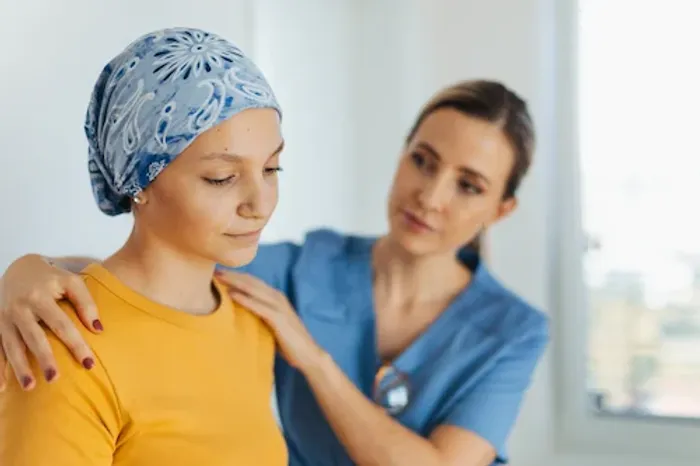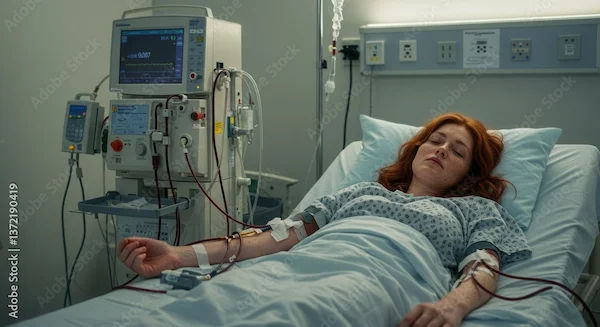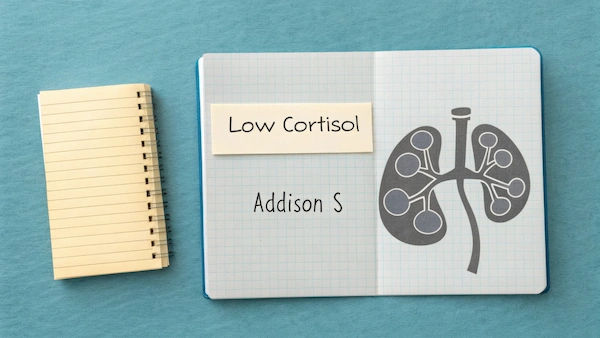Guide to Minimising Radiation Therapy Side Effects
Learn how to minimise radiation therapy side effects with proactive strategies, skin care tips, nutrition guidance, and expert advice for a safer, more comfortable treatment experience.

Written by Dr. Rohinipriyanka Pondugula
Reviewed by Dr. Vasanthasree Nair MBBS
Last updated on 13th Jan, 2026

Introduction
Facing radiation therapy can feel daunting. While this powerful treatment is highly effective at targeting and destroying cancer cells, it’s natural to worry about the potential side effects. You might have heard stories of fatigue, skin irritation, and other challenges. But here’s the most important thing to know: you are not powerless. Modern radiation oncology is more precise than ever, and there are numerous evidence-based strategies you can use to minimise radiation therapy side effects and maintain your quality of life during treatment. This guide moves beyond simply listing symptoms and offers a proactive, comprehensive approach. We will explore why side effects happen, what you can do before treatment begins to build resilience, and how to effectively manage common issues during and after your sessions. Our goal is to empower you with knowledge and practical tips, turning you from a passive patient into an active partner in your care. Remember, effectively managing side effects is a crucial part of t
Understanding Radiation Therapy and Why Side Effects Happen
Before diving into management strategies, it’s helpful to understand the basics of how radiation works and why it causes side effects. This knowledge can reduce anxiety and help you make sense of what your body is experiencing.
How Radiation Therapy Works
Radiation therapy uses high-energy particles or waves, such as X-rays or gamma rays, to damage the DNA inside cancer cells. This damage prevents the cells from growing and dividing, ultimately causing them to die. Modern technology, like intensity-modulated radiation therapy (IMRT) and image-guided radiation therapy (IGRT), allows oncologists to shape the radiation beams with extreme precision to conform to the tumour’s shape, thereby sparing as much healthy surrounding tissue as possible.
Why Do Side Effects Occur? The Science Explained
Despite this precision, some healthy cells in the treatment area inevitably get exposed to radiation. Side effects occur when these healthy tissues are damaged or destroyed. The type and severity of side effects depend on several factors:
The part of the body being treated: Radiation to the abdomen will cause different side effects than radiation to the lung.
The total dose of radiation and the treatment schedule.
Your overall health, including age and pre-existing conditions.
It's a balancing act: delivering a dose high enough to kill cancer cells while minimising collateral damage to healthy cells. The good news is that healthy cells are generally better at repairing themselves than cancer cells are, which is the fundamental principle that makes radiation therapy effective.
Health topic carousel:
Doctor's speciality: Radiation Oncologist
Text: Consult a Radiation Oncologist for the best advice
Proactive Strategies: Minimising Side Effects Before They Start
A proactive approach is your strongest weapon. By preparing your body in advance, you can build a foundation that helps you tolerate treatment better and recover more quickly.
The Pre-Treatment Consultation: Your Blueprint for Success
Your initial consultation with your radiation oncologist is critical. This is your opportunity to ask questions and create a personalised plan. Come prepared with a list. Key questions to ask include:
What specific side effects are most common for my treatment area?
What can I do now to prevent or lessen them?
Are there any specific creams, diets, or supplements I should use or avoid?
Who should I contact if I experience severe side effects?
Nutrition and Hydration: Building a Resilient Foundation
Think of your body as a fortress. Proper nutritional support strengthens your walls. Before treatment begins, focus on a balanced diet rich in protein (for tissue repair), complex carbohydrates (for energy), and healthy fats. Staying well-hydrated is equally crucial, as water helps flush out toxins and supports every cellular function. If you are undergoing radiation for head and neck cancer, a registered dietitian can provide tailored advice, which may include high-calorie, high-protein shakes if eating becomes difficult later.
Skin Care Pre-Hab for Radiation Treatment Areas
For patients receiving external beam radiation, skin care is paramount. "Pre-hab" involves gentle care starting before your first session. Here are some essential tips:
Use mild, fragrance-free soaps (like Dove or Cetaphil).
Avoid shaving the treatment area with a razor if possible; consider an electric razor.
Do not apply any lotions, perfumes, deodorants, or powders to the area on treatment days unless approved by your oncology team.
Protect the area from the sun with clothing or a broad-spectrum sunscreen (SPF 30+), as radiated skin is extremely sun-sensitive for life.
Managing Common Side Effects During Treatment
Even with the best preparation, you will likely experience some side effects. The key is to manage them early and effectively.
Combating Radiation Fatigue: More Than Just Tiredness
Radiation fatigue is the most common side effect. It’s not ordinary tiredness; it’s a profound lack of energy that rest doesn’t always fix. To manage it:
Listen to your body: Balance activity with rest. Take short naps (20-30 minutes) rather than long ones that can disrupt nighttime sleep.
Prioritise gentle exercise: Studies show that light to moderate exercise, like short walks or yoga, can actually boost energy levels.
Delegate tasks: Don’t be afraid to ask family and friends for help with groceries, cooking, or chores.
Eat for energy: Small, frequent meals rich in protein and complex carbs can help maintain steady energy levels.
Caring for Your Skin: From Redness to Peeling
Skin reactions can range from mild redness (like a sunburn) to dryness, itching, and sometimes peeling. Your radiation team will recommend a specific cream for radiation skin burns and irritation. General rules include:
Apply approved moisturisers liberally and often, but at least 2-3 hours before your treatment session.
Wear loose, soft clothing over the treated area.
Avoid hot baths and showers; use lukewarm water.
Never scratch the area. If itching is severe, ask your doctor for a recommended anti-itch product. If your skin shows signs of blistering, weeping, or severe pain, consult your doctor immediately. For persistent or worsening skin reactions, you can consult a dermatologist online with Apollo24|7 for prompt advice.
Site-Specific Symptom Management
Head and Neck Radiation: Managing Oral Mucositis and Dry Mouth
Radiation to this area can cause painful mouth sores (mucositis) and dry mouth (xerostomia). Here are practical steps to help manage these symptoms:
Oral Care: Use a very soft-bristled toothbrush and a mild, non-alcoholic mouthwash. Rinse frequently with a salt and baking soda solution (1 tsp salt, 1 tsp baking soda in 1 quart of water).
Diet: Choose soft, moist, bland foods. Avoid acidic, spicy, or rough foods that can irritate sores.
Dry Mouth: Suck on sugar-free candy or ice chips, and use artificial saliva products.
Apollo24|7 offers convenient home collection for tests like vitamin levels if malnutrition is a concern.
Chest Radiation: Addressing Coughing and Swallowing Issues
This can lead to a persistent cough, sore throat, or difficulty swallowing (dysphagia). Below are helpful strategies to manage these symptoms:
Coughing: Use a humidifier to moisten the air. Your doctor may prescribe cough medicine.
Swallowing: A speech-language pathologist can teach you swallowing exercises. Opt for softer foods and thickened liquids if needed.
Abdominal/Pelvic Radiation: Coping with Nausea and Diarrhea
Here are some practical ways to manage nausea and diarrhea during abdominal or pelvic radiation:
Nausea: Eat small, bland meals throughout the day. Ginger tea or candies can help. Your doctor can prescribe effective anti-nausea medication.
Diarrhea: Follow a low-fiber diet (bananas, white rice, applesauce, toast). Stay hydrated with water, broth, and electrolyte solutions. If diarrhea is severe or accompanied by dehydration signs, it's important to contact your doctor. You can book a physical visit to a specialist with Apollo24|7 for an in-person evaluation.
Long-Term Wellness: Life After Radiation Treatment
Your journey doesn’t end when treatment does. Being aware of long-term effects of radiotherapy and committing to follow-up care is essential for lasting health.
Recognising and Managing Late Effects
Some side effects, called late effects, can appear months or even years after treatment. These vary by treatment site but can include tissue changes, fertility issues, or a small increased risk of secondary cancers. Your oncology team will discuss the specific late effects relevant to your treatment. The key is awareness and reporting any new or unusual symptoms to your doctor during follow-up visits.
The Importance of Follow-Up Care
Regular follow-up appointments are non-negotiable. These visits allow your doctor to monitor your recovery, check for any signs of cancer recurrence, and manage any lingering or late side effects. This is also the time to discuss your emotional well-being and any need for ongoing emotional support during cancer treatment.
Conclusion
Navigating radiation therapy side effects is a significant part of the cancer treatment journey, but it is a challenge you can meet with knowledge and preparation. By understanding the process, adopting proactive strategies, and communicating effectively with your healthcare team, you can exert a great deal of control over your experience. Remember, the goal is not just to complete treatment, but to do so while preserving your quality of life as much as possible. Every person's experience is unique, so be patient with yourself and celebrate small victories along the way. You have the strength to get through this, and you don't have to do it alone. Your medical team, your loved ones, and resources like this guide are here to support you every step of the way.
Health topic carousel:
Doctor's speciality: Radiation Oncologist
Text: Consult a Radiation Oncologist for the best advice
Frequently Asked Questions (FAQs)
1. What is the most effective cream for radiation skin burns?
A. There is no single "best" cream, as recommendations can vary. Most radiation oncologists recommend a gentle, fragrance-free, water-based moisturiser like Miaderm, Aquaphor, or Calendula cream. It is crucial to use only the product your specific oncology team approves, as some ingredients can interfere with treatment.
2. How long after radiation do side effects typically last?
A. Most common side effects, like fatigue and skin reactions, begin to improve within a few weeks after treatment ends. However, it can take several months for your energy to fully return. Some long-term or late effects may persist or appear much later, which is why follow-up care is so important.
3. Can I use ice packs to soothe skin after radiation?
A. It's generally safe to use a cool compress, but avoid placing ice directly on the treated skin. Always get approval from your nurse or doctor first. Do not use ice packs before your treatment session, as cold can reduce blood flow and potentially make the radiation less effective.
4. Is it safe to exercise during radiation therapy?
A. Yes, in most cases, gentle to moderate exercise is not only safe but recommended to help combat fatigue and improve mood. Activities like walking, stretching, or yoga are excellent. Always listen to your body and discuss an exercise plan with your doctor before starting.
5. What should I do if I develop a fever during treatment?
A. A fever can be a sign of infection, which is a serious concern when your immune system may be compromised. Contact your oncology team immediately if your temperature is 100.4°F (38°C) or higher. They will advise you on the next steps.




.webp)